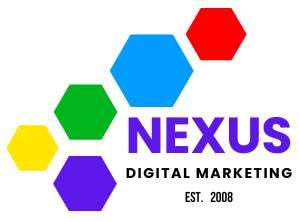Unlocking Digital Marketing Success for Small Business Owners
In today’s digital age, small business owners face both exciting opportunities and daunting challenges when it comes to marketing their products or services online. The landscape of digital marketing is constantly evolving, with new platforms, tools, and strategies emerging at a rapid pace. For many entrepreneurs, navigating this complex terrain can feel overwhelming. However, with the right approach and knowledge, digital marketing can become a powerful ally in growing your small business.
The Digital Marketing Revolution
Gone are the days when a simple newspaper ad or radio spot could effectively reach your target audience. The internet has fundamentally changed how consumers discover, research, and interact with businesses. Consider the story of Sarah, a local bakery owner who struggled to attract customers beyond her immediate neighborhood. By embracing digital marketing strategies, she was able to showcase her unique creations on Instagram, engage with food enthusiasts on Facebook, and even start taking online orders through her website. Within months, Sarah’s bakery became a must-visit destination for tourists and locals alike, all thanks to her savvy use of digital channels.
Building a Strong Online Presence
The foundation of any successful digital marketing strategy is a robust online presence. This starts with a well-designed, user-friendly website that clearly communicates your brand’s value proposition. But it doesn’t stop there. Here are key elements to consider:
- Search Engine Optimization (SEO): Optimize your website to rank higher in search results for relevant keywords.
- Content Marketing: Create valuable, informative content that addresses your audience’s needs and questions.
- Social Media Marketing: Engage with your audience on platforms where they spend their time.
- Email Marketing: Build a subscriber list and nurture relationships through personalized communications.
- Online Advertising: Leverage platforms like Google Ads or social media advertising to reach new potential customers.
Leveraging Data for Smarter Decision-Making
One of the most powerful aspects of digital marketing is the ability to track and analyze data in real-time. Tools like Google Analytics provide invaluable insights into website traffic, user behavior, and conversion rates. This data allows small business owners to make informed decisions about where to allocate their marketing budget and which strategies are delivering the best return on investment.
For example, a small boutique clothing store might discover through their analytics that most of their online sales come from Instagram. Armed with this knowledge, they can focus more resources on creating engaging Instagram content and running targeted ads on the platform, rather than spreading their efforts too thin across multiple channels.
Embracing Emerging Trends
To stay competitive in the digital space, it’s crucial to keep an eye on emerging trends and technologies. Some current trends that small business owners should be aware of include:
- Video Marketing: Short-form video content on platforms like TikTok and Instagram Reels is exploding in popularity.
- Voice Search Optimization: With the rise of smart speakers and voice assistants, optimizing for voice search is becoming increasingly important.
- Artificial Intelligence: AI-powered chatbots and personalization tools can enhance customer experience and streamline operations.
- Influencer Marketing: Partnering with micro-influencers in your niche can help reach highly engaged audiences.
Overcoming Common Challenges
While the potential benefits of digital marketing are immense, small business owners often face unique challenges in implementation. Limited budgets, lack of technical expertise, and time constraints are common hurdles. However, these can be overcome with strategic planning and the right resources.
Take the case of John, a local plumber who was hesitant to invest in digital marketing due to budget concerns. He started small by claiming his Google My Business listing and encouraging satisfied customers to leave reviews. This simple step significantly improved his local search visibility, leading to an increase in calls and bookings. Encouraged by this success, John gradually expanded his digital marketing efforts, learning and adapting along the way.
Tips for Digital Marketing Success
- Know Your Audience: Develop detailed buyer personas to understand your target customers’ needs, preferences, and online behavior.
- Set Clear Goals: Define specific, measurable objectives for your digital marketing efforts, whether it’s increasing website traffic, generating leads, or boosting sales.
- Focus on Value: Create content and offers that genuinely help your audience solve problems or meet their needs.
- Be Consistent: Maintain a regular posting schedule and coherent brand voice across all digital channels.
- Engage and Interact: Respond promptly to comments, messages, and reviews to build strong relationships with your audience.
- Test and Optimize: Continuously experiment with different strategies and use data to refine your approach.
- Stay Educated: Keep learning about new digital marketing trends and best practices through online courses, webinars, and industry blogs.
The Power of Community and Collaboration
One often overlooked aspect of digital marketing for small businesses is the power of community and collaboration. By connecting with other local businesses, industry influencers, and even complementary brands, you can expand your reach and create mutually beneficial relationships.
For instance, a local gym owner might partner with a nutritionist to create a series of health and fitness videos for social media. This collaboration not only provides valuable content for their respective audiences but also introduces each business to a new pool of potential customers.
Measuring Success and Iterating
As with any business strategy, it’s essential to regularly assess the performance of your digital marketing efforts. Key performance indicators (KPIs) might include website traffic, social media engagement rates, email open rates, or conversion rates. By closely monitoring these metrics, you can identify what’s working well and where there’s room for improvement.
Remember, digital marketing is not a “set it and forget it” endeavor. It requires ongoing attention, analysis, and adjustment. The most successful small businesses are those that remain agile, willing to pivot their strategies based on data and market feedback.
Conclusion: Embracing the Digital Future
For small business owners, digital marketing represents a powerful opportunity to level the playing field with larger competitors. By leveraging the right strategies, tools, and platforms, even the smallest local business can build a strong online presence and connect with customers in meaningful ways.
The key is to start small, stay focused on providing value to your audience, and continuously learn and adapt. With persistence and creativity, digital marketing can become a cornerstone of your business growth strategy, helping you attract new customers, build brand loyalty, and thrive in the digital age.








